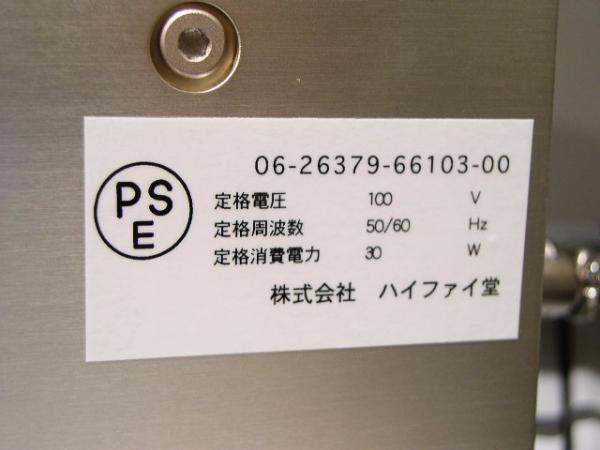Update to an earlier post where I discussed Japan’s new restrictions on sales of second hand electronics. I’ll start by summarizing what I know about the issue so far, and then add the good news at the end.
To summarize, Japan is (from April 1) requiring that most used electronics older than 5 years of age must be certified as electrically safe for usage before resale, which puts a serious cramp in the business of small scale used goods stores. While few people really care about being able to get their hands on a decade old refrigerator or rice cooker, fans of vintage electronic musical instruments were particularly outraged, and organized a strong campaign against the new regulations.
This issue became widely discussed on the English internet when retro gaming fans became scared that sales of used consoles would become illegal. I pointed out that foreign export sales of all items will remain unrestricted, which is at least a boon to retro electronics fans outside of Japan, but it could still potentially cause problems for Japanese gamers.
Since the regulations are about electrical safety, in the case of units that operate off of an external power supply, it seems that only the power supply itself will be tested, and there will also be a grace period of 2 additional years before regulations regarding AC adapters and power cords come into effect. Now, it would be possibly to replace the old power supply with a newer one of the correct voltage/amperage, but that’s a rather serious step for an ordinary gaming store, and would probably cause serious price increase. Also, there are unfortunately a few models of consoles that integrated the power supply, which means that they will be affected right on April 1, without the AC adapter related grace period.
HOWEVER, thanks to an anonymous comment, I noticed that there is some very good news on this front. In fact, I’ll just repost the text of the comment below, since it covers it pretty well.
Yesterday March 14, 2006 the Japanese ministry in charge of the PSE law and its interpretation announced that “Vintage Electric Equipment” including guitar amps, audio, electric musical instruments, and electric powered photographic equipment etc. will be exempted from full PSE testing requirements, and will be allowed to sell after a simplified registration procedure is followed by the merchant.
For those who can read Japanese, see news item at Yahoo Japan:
http://dailynews.yahoo.co.jp/fc/domestic/pse_law/
http://headlines.yahoo.co.jp/hl?a=20060314-00000053-mai-bus_allAlso notice that major second-hand audio retailer HiFi Do had already registered with the ministry as a re-manufacturer of used audio equipment and has set itself up to do fully compliant testing and certification, and also will equip each piece of used equipment they sell (after testing and modifying the equipment to comply with the law) with a properly registered PSE sticker.
See http://www.hifido.co.jp/merumaga/osu_sale/060310/
So this means the good Ryuichi Sakamoto (who campaigned against the law prohibiting sale of vintage synthesizers etc.) and his friends were successful.
Check out that last link for a neat series of photos of the solder-smiths at Hifido testing, repairing, and certifying equipment under the new PSE regulations (the source of the above image.)
According to the Mainichi Shinbum, the Japanese Synthesizer Programmers Association delivered a petition with 75,000 signatures to the PSE office, prompting their decision to reclassify musical equipment. This is obviously great news for fans of vintage music and photographic equipment, it also offers hope to retro gamers. While gaming machines (software and peripherals are of course safe, since they aren’t serious electrical conduits) are still classified as restricted items, this decision clearly opens the door for their inclusion on the list of vintage, exempt, items. While their may not be a Japanese Vintage Gaming Association, I wouldn’t be surprised to see some higher-ups from companies like Nintendo or Sega step forward and ask the government not to cordon off their legacy with red tape.



 I noticed that Kotaku has a
I noticed that Kotaku has a